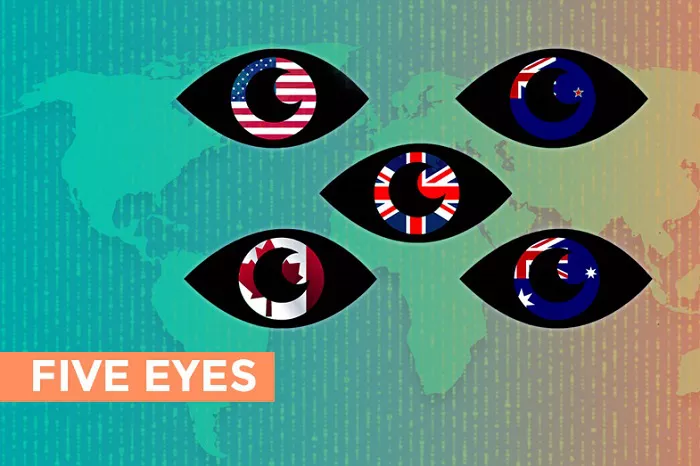The Five Eyes (FVEY) is an intelligence-sharing alliance comprising five English-speaking countries: the United States, the United Kingdom, Canada, Australia, and New Zealand. Established in the aftermath of World War II, this alliance has become a cornerstone of global intelligence cooperation. Its primary goal is to enhance national security through the collection and sharing of intelligence, particularly signals intelligence (SIGINT).
Historical Background
The origins of the Five Eyes alliance trace back to the 1941 Atlantic Charter, which laid the groundwork for cooperation between the UK and the US. This collaboration was formalized with the 1943 BRUSA Agreement, facilitating cooperation between the US War Department and the British Government Code and Cypher School. The alliance was further solidified with the 1946 UKUSA Agreement, which expanded to include Canada, Australia, and New Zealand in subsequent years. This agreement established a framework for sharing intelligence and dividing responsibilities among member nations.
Objectives of the Five Eyes Alliance
The Five Eyes alliance aims to:
- Enhance National Security: By pooling intelligence resources, member countries can better identify and respond to global threats.
- Facilitate Intelligence Sharing: The alliance promotes the secure and rapid exchange of intelligence information among its members.
- Counter Terrorism and Espionage: Collaborative efforts help in monitoring and disrupting terrorist networks and foreign intelligence threats.
- Strengthen Cybersecurity: Sharing information on cyber threats enables members to protect critical infrastructure and digital assets.
- Monitor Geopolitical Developments: Surveillance and intelligence-gathering activities help in analyzing strategic threats and safeguarding national interests.
Operations and Activities
The Five Eyes alliance conducts various operations, including:
- Signals Intelligence (SIGINT): Intercepting communications such as phone calls, emails, and internet traffic.
- Human Intelligence (HUMINT): Gathering information through human sources.
- Cyber Intelligence: Monitoring and responding to cyber threats and attacks.
- Geospatial Intelligence (GEOINT): Analyzing satellite imagery and geospatial data.
These operations are coordinated through secure networks like STONEGHOST, which facilitates the sharing of classified information among member countries.
Controversies and Criticisms
The Five Eyes alliance has faced criticism for its surveillance practices, particularly following the 2013 disclosures by Edward Snowden. Concerns have been raised about the extent of surveillance on citizens and the potential infringement on privacy rights. Additionally, the alliance’s activities have sparked debates about the balance between national security and individual freedoms.
Relationship with Other Alliances
Beyond the core Five Eyes alliance, there are extended partnerships:
- Nine Eyes: Includes the Five Eyes countries plus Denmark, France, the Netherlands, and Norway.
- Fourteen Eyes: Expands further to include Germany, Belgium, Italy, Spain, and Sweden.
These alliances facilitate broader intelligence sharing but also raise additional concerns about oversight and accountability.
Impact on Global Politics
The Five Eyes alliance plays a significant role in shaping global politics. Its intelligence-sharing capabilities have influenced international conflicts, counterterrorism efforts, and cybersecurity strategies. The alliance’s activities have also affected diplomatic relations, particularly with countries outside the alliance that are subject to surveillance.
Conclusion
The Five Eyes alliance serves as a critical component of global intelligence cooperation, aiming to enhance national security through shared intelligence efforts. While it has contributed to counterterrorism and cybersecurity initiatives, it also faces challenges related to privacy concerns and international relations. As global threats evolve, the alliance must navigate the complexities of maintaining security while respecting individual rights and international norms.


